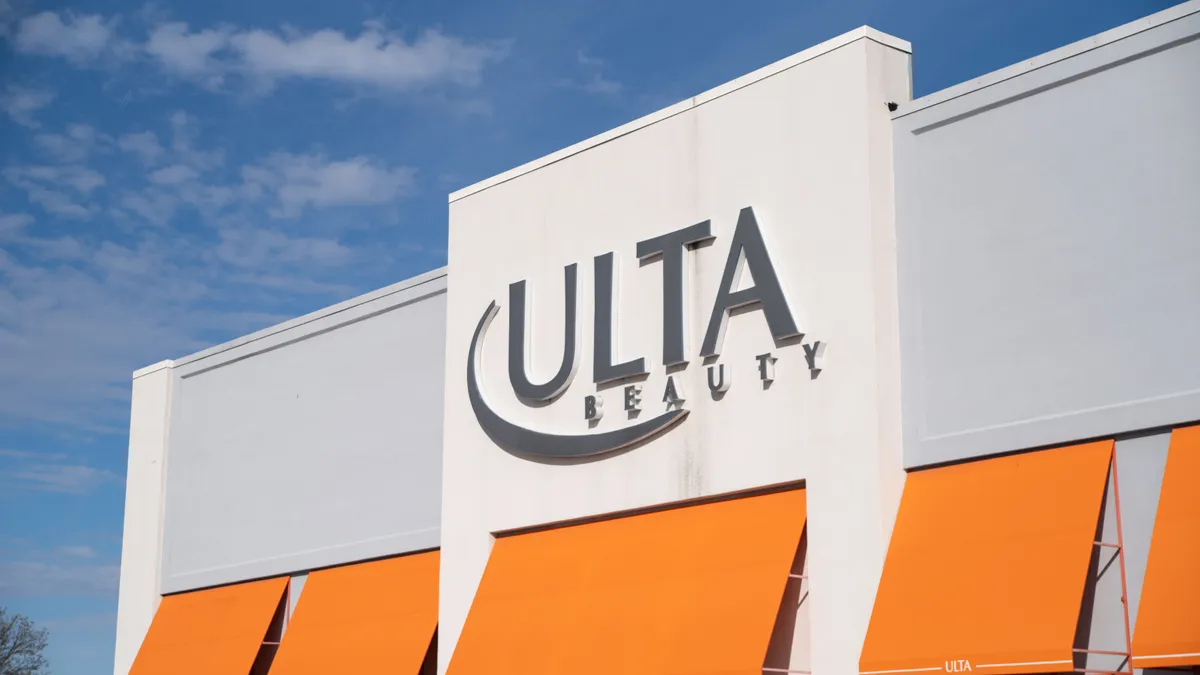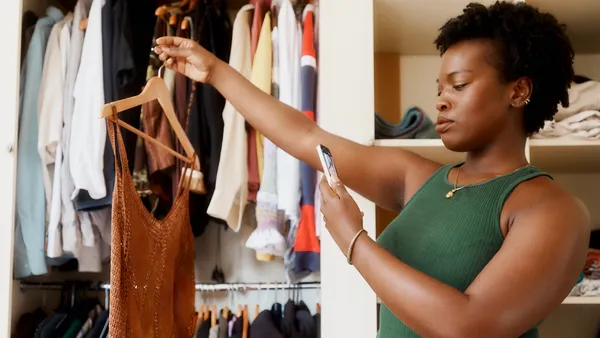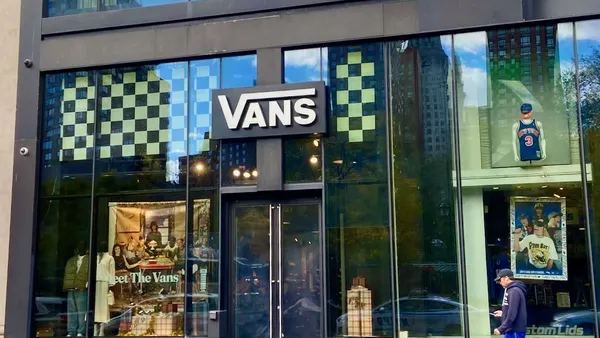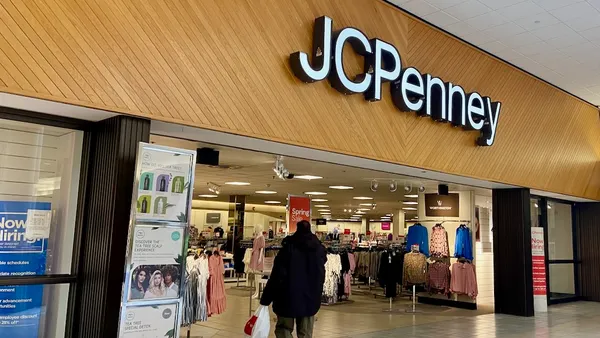Dive Brief:
- Despite industry headwinds, Ulta Beauty’s second quarter net sales increased 9.3% to $2.8 billion, according to a company release Thursday. The growth was due in part to the acquisition of U.K. retailer Space NK.
- The company’s comparable sales jumped 6.7% in the quarter due to a 3.7% increase in transactions and a 2.9% increase in average ticket. Ulta’s gross profit increased 11.6% and net income grew 3.3%.
- The beauty retailer raised its full-year financial outlook, now expecting net sales in a range from $12 billion to $12.1 billion and comp growth from 2.5% to 3.5%.
Dive Insight:
Ulta’s latest results show that at least some consumers continue to shop for discretionary goods despite macro pressures.
“As we look to the future, we remain committed to executing our Ulta Beauty Unleashed strategy and strengthening our operating model,” CEO Kecia Steelman said in a statement. “Our outlook for the remainder of the year reflects both the strength of our year-to-date performance and our caution around how consumer demand may evolve in the second half of the year. While near-term uncertainty persists, we’re staying focused on what we can control and on executing with excellence to deliver our uniquely Ulta Beauty experience.”
During the quarter, Ulta opened 24 new stores and now expects to open 63 new stores for the year (compared to the previously expected 60 new locations). On a call with analysts, Steelman noted that fragrance continued to be Ulta’s strongest category with double-digit growth in the quarter, and the retailer began selling 24 new brands in Q2.
The retailer’s latest earnings results follow news earlier this month that it mutually agreed to end the Ulta Beauty at Target shop-in-shop partnership next year. Steelman said on the call that revenue from the shop-in-shops contributed to “well below 1%” of Ulta’s net sales for fiscal 2024.
The company instead is investing more into its international growth. Acquiring the already established Space NK business allowed Ulta to take a capital sensitive approach to entering a large beauty market, Steelman said.
Both Steelman and interim CFO Chris Lialios acknowledged the existing dynamic economic environment and evolving trade policies. However, consumer engagement with beauty and wellness remains healthy, per the executives.
The company saw low-single-digit growth with its mass offerings and mid-single-digit growth in prestige beauty during the quarter, per Steelman.
“While we continue to manage the business thoughtfully amid ongoing macroeconomic uncertainty, we believe beauty and wellness offer a unique sense of comfort and escape, which we expect will continue to support the beauty category resilience,” the chief executive noted.















